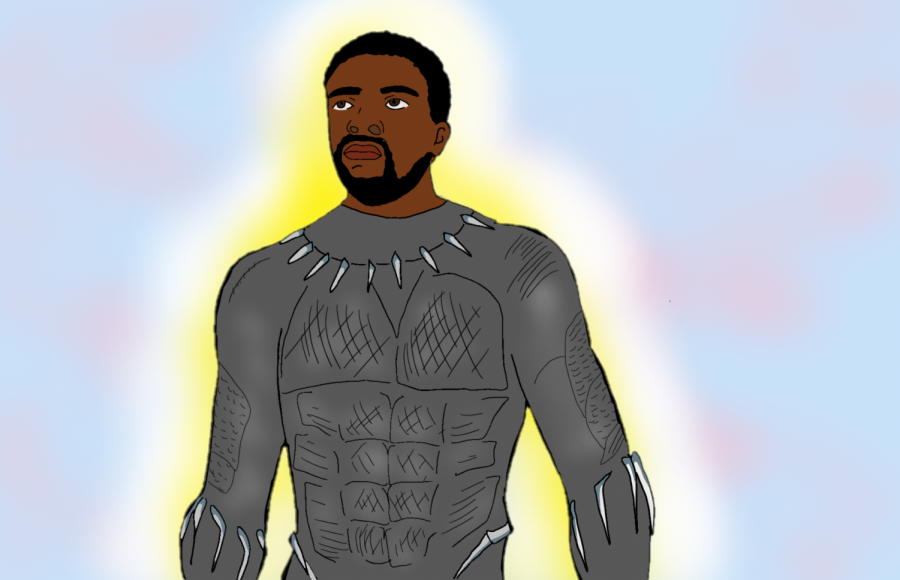Remembering Chadwick Boseman: The Loss of a Superhero
Playing the first Black superhero in the Marvel Cinematic Universe, late actor Chadwick Boseman’s portrayal of T’Challa in Black Panther is a milestone for the Black community.
A wave of shock and heartbreak rapidly unfurled across social media platforms as feeds flooded with a grinning black-and-white portrait of actor Chadwick Boseman, accompanied by the news of his passing on Aug. 28.
“It was no question that we had to feature his passing in the yearbook this year,” yearbook staff writer and junior Neha Gujjula said. “His story left many in sadness and despair, including our students here at Portola.”
The loss of Boseman has further emphasized Aug. 28 as a day of significance for the Black community, as it coincides with the anniversaries of the murder of Emmett Till, Martin Luther King Jr’s “I Have a Dream” Speech and Jackie Robinson Day.
Fans have commemorated Boseman’s expansive impact in just 14 major roles, reviving the spirits of historical Black icons like James Brown, Thurgood Marshall and Jackie Robinson in several biopics.
“With these kinds of movies being made, especially during times where racial inequality is high, people can understand and be educated about the issue,” senior Daniel Hayat said. “[Boseman] did an amazing job at representing these characters exactly how they needed to be represented.”
Boseman’s most popular role as superhero T’Challa in “Black Panther” may have also been his most influential. For the first time in the Marvel Cinematic Universe, a film features a Black superhero and references to East African culture.
The film’s Black representation is both a symbol of an evolving film industry and an act of defiance against centuries of oppressive colonial narratives.
“I think his role and the film itself has shown the film industry how we need more movies that tell different stories from multiple perspectives,” AP Language and Composition teacher and Marvel fan Jill Cavotta said. “Token minor roles can often perpetuate stereotypes. Plus, we need to see People of Color telling their stories and in the role of the main characters.”
Boseman’s legacy continues to empower the narratives of the African diaspora, showing Black children and adults alike that they, too, can be the heroes of their own stories.
Your donation will support the student journalists of Portola High School. Your contribution will allow us to purchase equipment and cover our annual website hosting costs.

Kelthie Truong is a Co-Managing Editor for the 2020-21 school year, her second and final year with the Pilot. When she’s not in the newsroom, you can...

Sidra Asif is the Back Page Editor and Social Media Manager for her third year on the Pilot. Outside of creating content for the newspaper, you can find...

Krisha Konchadi is the front page editor this year on the Portola Pilot. Along with editing and creating the front page, she loves making graphics and...




